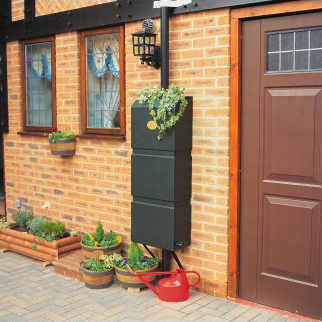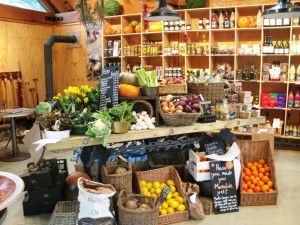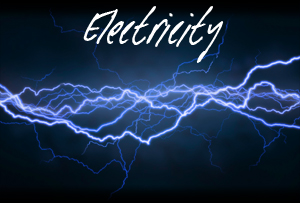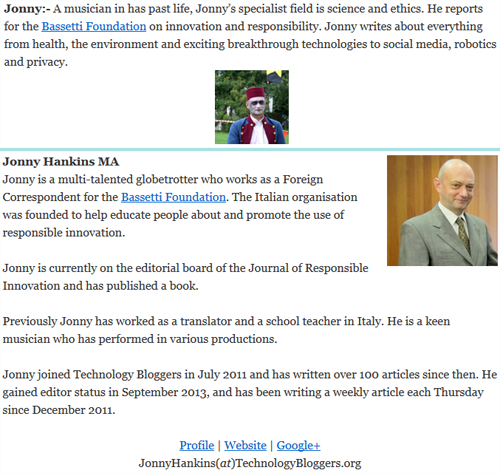We all leave a footprint on the world, just by being alive we contribute to environmental degradation. No matter what you do, you can’t eliminate your effect (offset it maybe) on the world, but you can minimise it.
In this article I am going to look at some very simple things you can do to reduce the impact you have on the planet, making you a greener individual.
Water Usage
The amount of water we use has a big impact on the environment, as well as other people. Last April I posted an article which asked you to question your usage of water. I have included a brief summary of the article
Of all the water on earth, just 0.007% is drinkable, and whilst our usage of water and the number of people on earth are both rapidly growing, water supplies aren’t. Drought is a real issue in many areas of the world and one in nine people don’t have access to safe drinking water.

Wall mounted water butts are becoming more popular – a great way to collect and store rainwater.
Excessive use (and arguably wastage) of water via things like regular use of hose pipes and using water hungry appliances (like washing machines) when they have spare capacity, can easily be reduced, and can significantly decrease our water usage.
In the comments, there was some great feedback. Jonny suggested using a water butt to collect rainwater to water your garden, saying “it is really shocking to think that many people use drinking water to keep the lawn green“. Shane told us how he plays 5 minute songs when having a shower, so he know when it’s time to get out, and Jean noted how he tries to fix leaks as soon as he finds them, as they are a massive waste of water – and money!
Buy Local
Another step you can take which will reduce your carbon footprint is choosing local. In 2009, I wrote an article on the technology behind food, discussing the journey food takes, and the impact it has on the planet, getting it to our table. Although the figures might have slightly changed, the concept behind the article is still the same: buying local produce significantly reduces your carbon footprint.
Local doesn’t even have to mean that close. Ideally, within 20 miles of the shop you buy is the best sort of ‘local’, however even food that has been grown within 200 miles is much better than food that has been flown across the globe.
Local food not only promotes energy conservation, but it also supports local farmers. Farm shops are a really good place you can get local food, why not check out BigBarn, a site designed to help you find where you can get locally produced food.

Farm shops are a great place to source local food.
Reuse, Repair and Recycle Technology
It is important to use technology to its full potential, and to keep using it until it is no longer viable. Once something stops working, or is no longer able to fulfil your needs, whenever possible, repair or upgrade it. If your PC is starting to run a little sluggish, try to speed it up again (maybe visit my speed up your computer article) add some more RAM, upgrade the graphics card, and consider increasing the storage capacity.
As Jonny wrote last year, electronic waste is a real problem, computer components can be hard to recycle, and are often toxic. Therefore it is important to try to reduce electronic waste, and when it does occur, ensure it is disposed or/recycled properly.
If you have reused and repaired a device as much as possible, the next step is recycling. Recycling electronic waste is a growing industry, computer recycling and schemes which enable you to recycle mobile phones, so your technology is either properly recycled, or repaired and reused, either resold locally, or distributed to developing countries are becoming ever more common. Many firms (like the one I link to above) are even paying you for your old technology – reduce your ecological footprint, and get paid, what more could you ask for!
Save Energy
There seems to be a growing resistance to nuclear power, fossil fuels are running out and this matched with the lack of investment in renewables, is leading us to a global energy crisis. Every individual can make a difference, by reducing their consumption.
 Turning off devices instead of leaving them on standby, switching to energy bulbs, and insulate your home and relatively simple and cheap ways to save energy, which we have probably all heard many times. Steps which involve using smarter technologies, such as getting Remote Heating Control installed and choosing smarter energy using devices are also good ways to save power, and are now also becoming more common.
Turning off devices instead of leaving them on standby, switching to energy bulbs, and insulate your home and relatively simple and cheap ways to save energy, which we have probably all heard many times. Steps which involve using smarter technologies, such as getting Remote Heating Control installed and choosing smarter energy using devices are also good ways to save power, and are now also becoming more common.
In Summary
Four of the best ways you can reduce your environment impact are to: be more frugal with water; try and buy local produce; maintain technology for as long as possible, and then recycle it; and reducing your energy usage.
Feel free to critique any of my points, and by all means, suggest your own ideas below.
 Here comes some good change.
Here comes some good change.


